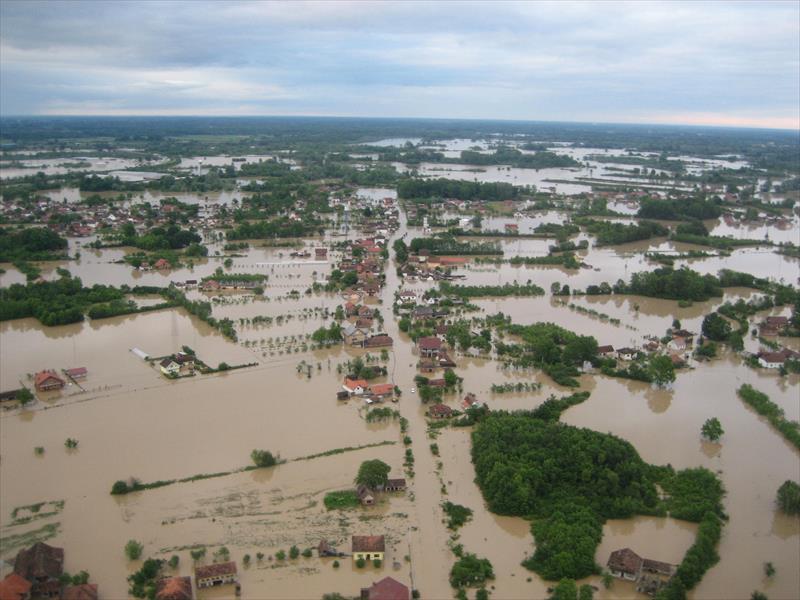On 27 May, the Director General of the European Commission’s Directorate-General for Enlargement, Christian Danielsson, accompanied by the Chief Coordinator of the EU for the Recovery Needs Assessment, Ricardo Zapata Marti, visited Doboj which is one of the cities most affected by the worst floods ever recorded in Bosnia and Herzegovina (BiH).
Danielsson and Zapata met with the Mayors of Doboj and Maglaj and other members of the Operational and Coordination emergency teams and discussed the situation on the ground after the devastating floods. They also visited Doboj police station and a refugee facility, which is now also used as a shelter for people evacuated during the floods.
On 4 June, the Head of the Delegation of the European Union (EU) to BiH and EU Special Representative, Ambassador Peter Sorensen, held a press conference in Sarajevo together with Mr Zapata to presents the activities related to BiH’s recovery needs following the floods. The EU continues to provide help and assistance to deal with the consequences of this natural disaster. In addition to immediate humanitarian aid provided so far, the European Commission (EC) has allocated an extra 42 million Euro to Bosnia and Herzegovina to tackle the aftermath of the floods.
This includes an initial amount in humanitarian aid to help the most vulnerable people in BiH and address their immediate needs, in particular food, health and sanitation, first aid and shelter. A priority is the provision of safe drinking water, basic emergency items such as blankets, mattresses, beds, linen, as well as utensils and supplies such as drying equipment for the rehabilitation of damaged homes. These funds will be channelled through the Red Cross/Red Crescent and other partner organisations on the ground.
The remaining money will respond to short to medium term reconstruction and relief needs in the affected areas. This funding is re-allocated from previous programmes under the Instrument for Pre-Accession Assistance (IPA). The money will be available by the end of June. It will include support for public infrastructure such as schools and social care services as well as basic equipment for enterprises and farms to restart their activities. In addition, the IPA 2013 programme will cover a call for proposals of 2 million Euro to be published in June in support of the introduction of flood response modules in line with the EU civil protection mechanism.
The EU is committed to continue its support also in the medium to long term with new IPA money that will be allocated for the period 2014-2020. The exact scope and amount will be decided on the basis of comprehensive needs assessments expected in the coming weeks, so that the funds can be made available to both countries over the summer. The European Commission is working with the affected countries and in close coordination with the International Financial Institutions (IFIs) to assess the exact needs and identify the best instruments and financial support. On this basis, the EU will mobilise further IPA funding to support infrastructure reconstruction, and improve river and flood risk management, also from a regional perspective. This will help to better anticipate and mitigate risks as well as improve civil protection mechanisms in case of natural disasters.
The dedicated EU Instrument contributing to Stability and Peace (IcSP, former Instrument for Stability) is already providing targeted support with key expertise for the conduct of needs assessments. The instrument will also provide further funding to address the critical issue of mines in BiH.
The short term humanitarian aid comes on top of the in-kind assistance provided by 22 EU Member States through the EU Civil Protection Mechanism. In total, around 800 EU member state relief workers were deployed in BiH , bringing with them motorised boats, helicopters, pumping equipment and humanitarian kits.
The EC’s Emergency Response and Coordination Centre (ERCC) has been in constant contact with the relevant authorities of the affected countries to make sure that the incoming aid matches the needs on the ground. Two EU civil protection teams helped coordinate the delivery of the assistance in Serbia and in BiH. The EC is also co-financing the transportation cost of the assistance and providing satellite images of the flooded areas to the authorities.




